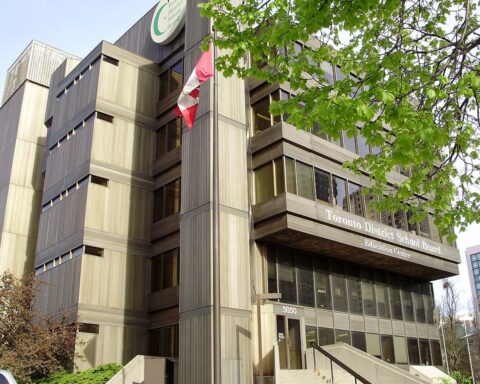Canada’s medical marijuana sector has a diverse set of names for its products and strains like Hindu Kush, Thai Sticks, Columbian Gold and South African Kwazulu. But when it comes to leadership positions in the industry, the names reveal a white, male dominance, according to a statistical analysis released recently. A lack of diversity in the industry appears to extend to new Canadians as well.
The new analysis from the University of Toronto’s Centre on Drug Policy Evaluation included 700 executives and directors across 166 licensed cannabis producers and 56 parent companies. The study found that overall, 84 per cent of cannabis industry leaders were White and only 16 per cent were non-White.
“Diversity in the leadership of Canada’s legal cannabis industry is critical to ensure that historically overcriminalized racialized groups are not excluded. Much work remains to achieve a ‘diverse, competitive and legal industry,’” said the authors of the report.
“While there have been some limited initiatives to facilitate greater industry diversity, there is a notable absence of government regulation and adoption of programs that would structurally address the underrepresentation of racialized groups that were disproportionately targeted and punished under prohibition,” the document reads.
Also private actors in the industry should “recognize the value in diversifying the racial and gender makeup of executives and directors, and adopt strategies to achieve such diversification,” the authors noted.
Here are some of the key findings from the report:
- Overall, 84 per cent of cannabis industry leaders were White and 16 per cent were non-White.
- Non-White cannabis industry leaders included 6 per cent South Asian, 3 per cent East and Southeast Asian, 2 per cent Indigenous, 2 per cent Arab, 1 per cent Black, and 1 per cent Latinx.
- With respect to gender, 86 per cent were men and 14 per cent were women.
- Taking race and gender together, White men (73 per cent) featured most commonly among executives and directors, followed by non-White men (14 per cent), White women (12 per cent), and non-White women (2 per cent).
Lack of diversity among cannabis industry leaders
When it comes to Indigenous people included in the analysis, most are from the Assembly of Nova Scotia Mi’kmaq Chiefs, which holds a majority stake in a licensed producer. If those leaders were excluded, the analysis notes, Indigenous people would comprise only 0.6 per cent of Canada’s cannabis leaders.
“The industry can certainly benefit from more BIPOC (Black, Indigenous and People of Colour) leadership,” said Farhan Lalani, co-founder and director of Franchise Cannabis, a Toronto-based seed-to-sale medical marijuana company with a diverse portfolio of cultivation, processing and distribution operations in Germany, Denmark, Uruguay, and Colombia. The company is also looking to add partnerships in Asia.
“In this business, especially when you work internationally, cultural competency must be in your skill set,” said Lalani, who traces his ancestry back to India.
“Diversity in leadership gives companies the ability to understand and communicate effectively with people across cultures….It also allows the leadership team to be aware of its own world views and helps develop positive attitudes towards cultural differences,” he said.
The lack of new Canadians in leadership roles in the medical marijuana business is due to a lack of clarity in American laws, according to Ian Terrence, who advises potential investor immigrants to Canada.
“They fear that public knowledge of their involvement in the cannabis business in Canada may see them being turned away at the US border or if they travel back to their home countries, where marijuana is still illegal,” he said.
“The U.S. Customs and Border Protection (CBP) has indicated that those participating in the marijuana business may be turned away at the border, saying: ‘Working or having involvement in the legal marijuana industry in U.S. states where it is deemed legal or Canada may affect an individual’s admissibility to the U.S.’”
Canada, however, has continued to make immigration provisions to meet the urgent need for highly-skilled growers, investors and technical support staff in the industry. Since it’s legalization in October 2018, there have been at least 15 categories under National Occupation Classification (NOC) advertised for new Canadians wanting to join the industry.
A multiple-award winning journalist, Fabian Dawson is an internationally acclaimed author, filmmaker and media expert. His work over the last four decades spans the globe and he also serves as a consultant/strategic advisor to a variety of international companies. As deputy editor-in-chief of The Province, part of the Postmedia chain, Dawson led initiatives within a special publications group to provide directed content for a variety of organisations. He was named the 2019 recipient of the Bruce Hutchison Lifetime Achievement Award at Jack Webster Awards. Dawson has been invited by the governments of India, Malaysia, Taiwan, China, Hong Kong and the United States to act as a media observer/advisor on a variety of Asian-Canada issues. Dawson, now operates FD Media, which specializes in harnessing editorial assets to revenue generating opportunities.






I think it is the right time to invest or start in bud industry. Because due to covid, many business are in loss. This can be a good startup.
Diversity in the authority of Canada’s legal cannabis industry is basic to guarantee that truly over criminalized racialized bunches are not prohibited.
There should be more diversity in cannabis products as it gives the companies the ability to effectively communicate to people across different cultures.
Yes, diversity in the leadership of Canada’s legal cannabis industry is needed. Thanks a lot for sharing this blog on this topic.
Thanks for posting this valuable information. Keep posting such kind of good articles. Visit seebeauty if you are looking for CBD oil beauty products
I too agree with the statement. Thanks for sharing this important information.
Well, it may not be true if you by weed online in Canada. If you go to a dealer then you will have only a few options to choose from and no guarantee of the quality. On the other hand, if you buy weed online buy can easily browse through the online store and make a purchase from all the available options.